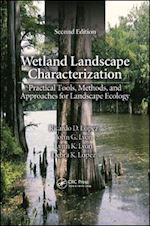Ricardo "Ric" Daniel Lopez, Ph.D. is a leader in the field of wetlands ecology and landscape ecology. He has led the way in novel applications of field-based and geospatial data analyses to solve current and future global environmental challenges. This body of work includes monitoring and assessing upland, aquatic, and wetland ecosystems, with particular focus on a wide variety of wetlands, rivers, and streams. Ric’s career has focused on the development and application of both broad-scale and community-based indicators of restoration, sustainability, and environmental risk. A native of Santa Barbara, California, Ric spent his youth knee-deep (or deeper) in the many wetlands and tide pools of the region. John Grimson Lyon, Ph.D. was interested early on in wetlands as places of native vegetation. This interest was honed during youthful wanderings in the mountains and river valleys of the Pacific Northwest, California, Nevada, and Alaska. Systematic study at the undergraduate, graduate, and professional levels has yielded a body of work on remote sensing, mapping, identification, and characterization of processes in wetlands, and related ecosystems in the Great Lake states and Western United States. Lynn Krise Lyon is a lifelong educator, writer, and artist. She spent a good portion of her youth playing in creeks and streams. As an adult, she has visited wetlands all over the United States with her husband, John. She abhors black flies and snakes, loves cranberry bogs, and fervently believes Michigan has the best wetlands in the world. Debra Kim Lopez has dedicated her existence to the appreciation of literature and writing, global sustainability issues, and the social sciences. She values the importance of global initiatives for improving communities around the world; she has traveled extensively. Lopez has partnered with her husband, Ric, on a plethora of wetland and other environmental issues, ever since they first encountered one another on a common travel adventure 22 years ago.












